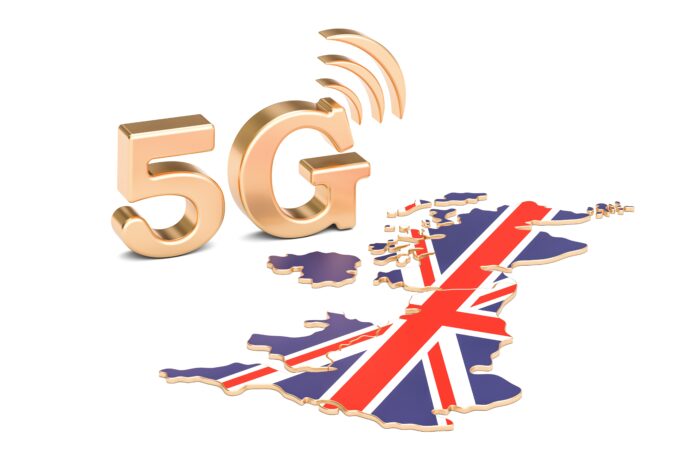They claim they will create “one of Europe’s leading 5G networks” – pending approvals, of course
Vodafone Group and CK Hutchison Group Telecom Holdings (CKHGT) have entered into binding agreements to combine their UK telecom businesses – Vodafone UK and Three UK. Talks about the merger was first publicly acknowledged last October after weeks of speculation.
Vodafone will own 51% of the combined business and CKHGT 49%. The transaction is expected to close before the end of 2024, subject to regulatory and shareholder approvals – and therein lies the rub.
Needing approval
Margherita Della Valle, Vodafone Group’s CEO, described the merger of Vodafone UK and Three UK as being “great for customers, great for the country and great for competition.”
She might have a tough job getting regulators to buy that since, according to Paolo Pescatore of PP Foresight, “This will be a hard sell given that both companies have been outperforming the market for the last year or so”.
He added, “Both parties need to demonstrate that this is genuinely in the interest of UK plc, the economy, and consumers for it to have a chance of getting over the line.”
Kester Mann, Director, Consumer and Connectivity at CCS Insight, is somewhat more upbeat: “This long-awaited mega merger represents the biggest shake-up in the UK mobile market for over a decade.
“The deal makes plenty of sense as both providers are sub-scale. As separate entities, it would have been near impossible for either to grow enough organically to come close to challenging BT or Virgin Media O2 for size. Inevitably however, there will be widespread fears over job cuts.”
The pro-customer argument
Vodafone states, “From day one, millions of customers of Vodafone UK and Three UK will enjoy a better network experience with greater coverage and reliability at no extra cost, including through certain flexible, contract-free offers with no annual price increases, and social tariffs.”
Further, the merged company will reach more than 99% of the UK’s population with its 5G standalone network. The combined business will invest £11 billion in the UK over ten years which is expected to give customers up to a six-fold increase in average data speeds by 2034.
The two claim this will be one of the most advanced 5G networks in Europe. Mann comments, “An £11 billion network investment plan will seek to allay regulatory concerns. But this deal will still face a major challenge to win approval. At this stage, I believe it is too difficult to call either way.”
He adds, “My view is that the deal should be approved. It is better to have three strong providers than two that are dominant and two that are sub-scale. Blocking it could thwart the long-term development of the UK’s telecoms infrastructure.”
Different times?
Previous attempts to whittle the UK’s four mobile operators down to three were thrown out – O2 and Three UK were prevented from merging by the European Commission back in 2016 – on the grounds it would damage competition and consumers’ choice.
James Robinson, Senior Analyst at Assembly has this to say:“While the CMA [Competition and Markets Authority] has remained tight-lipped, DSIT [the Department for Science, Innovation and Technology] and Ofcom have publicly expressed their openness to consolidation, recognising the challenging financial state of both operators, the investment required for 5G, the need for more resilient networks and the emerging competitive pressure from big tech.
“With the Government’s recent Wireless Infrastructure Strategy [published in April], the merger announcement, with its commitment to investment and jobs, comes at an opportune moment. Together, Three and Vodafone would be better equipped to deliver ultrafast, reliable and secure mobile connectivity throughout the UK – the exact thing the Government’s pro-investment strategy wants to see.
“The CMA will be the decision-maker on the deal. Though the parties have made a strong case, the competition authority’s review will soon reveal how well their arguments have landed. Its assessment is likely to focus on spectrum holdings, networking sharing agreements, access for MVNOs and retail prices for consumers.”
Good of the country and competition
In anticipation of opposition from various parties, the parties say that by having a best-in-class 5G network in place sooner, the merger will deliver up to £5 billion per year in economic benefit by 2030, create jobs and support digital transformation of the UK’s businesses.
They also pledge that every school and hospital in the UK will have access to 5G Standalone by 2030.
By gaining greater scale, the parties argue that the merged operator will level the competitive field by increasing competition against the UK’s two leading converged operators, meaning BT/EE and Virgin Media O2.
They also claim it will give MVNOs more choice, while their combined fixed wireless access will be available to 82% of the UK households by 2030, complementing their combined fibre infrastructure.
And for grumpy stakeholders…
Vodafone has been under pressure from shareholders to improve share price including through streamlining operations including consolidation. If Della Valle as Vodafone could get this over the line, Mann says, “would be a major boost to her early tenure”.
Vodafone claims the merger is expected to result in efficiencies of more than £700 million in annual costs and capex synergies by the fifth full year post-completion, with an implied net present value of more than £7 billion.
Vodafone UK’s current CEO, Ahmed Essam, will become CEO of the merged entity while Three UK’s CFO Darren Purkis will continue in that role in the merged company.
And finally, the Chinese question
There has been speculation about the security implications as Three UK has a Hong Kong-headquartered parent, but Pescatore conludes, “There should not be any security concerns as the joint venture should be majority owned by Vodafone. I expect the Hutchison share to reduce over time.”


